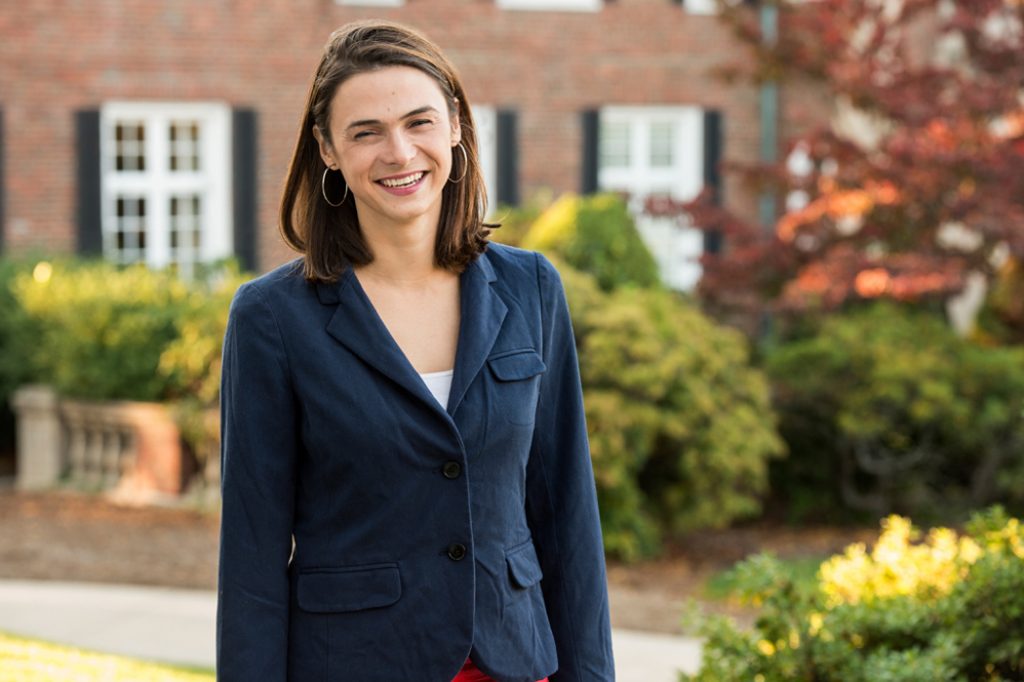Shannon Johnson ’15 and her legal team represent some of the most traumatized clients imaginable: indigent immigrants, refugees, and asylum-seekers who are survivors of violence, sexual assault, torture, and brutal crimes; who are members of the LBGTQ community; who are parents separated from their children; who have mental competency issues or limited education.
These are clients with whom you need to build trust, who take time to open up. They need to meet with you in person, to have you by their side in court.
But the pandemic has put in-person representation out of reach. Since mid-March, Johnson, a managing attorney for the Florence Immigrant and Refugee Rights Project, in Arizona, and her team have taken to representing their clients by telephone, because some immigration courts—those that process cases of people in detention—continue to operate.
It’s far from ideal.
Johnson’s team of four staff attorneys and two legal assistants provides pro bono legal assistance to some of the neediest, most vulnerable adults imprisoned in Arizona’s rural detention centers. These facilities lack soap, disinfectant, gloves, and masks. Social-distancing is practically impossible. There have been reports of coronavirus outbreaks—all of which puts immigration courtrooms at risk for contagion as well.
Even in ordinary circumstances, representing these clients is challenging. “Meeting with, interviewing, and preparing people who have suffered severe trauma is hard,” Johnson says. “The adversarial nature of the proceedings makes them subject to cross-examination, which can be very stressful for a trauma survivor or a torture survivor.” Plus, there are the logistics. “Our clients are often detained in rural or remote areas. It’s a long drive to reach them.”
Telephonic representation adds additional layers of difficulty. “Our clients have told us that telephone-only interviews can be barriers to being comfortable talking. That makes it harder for us to get all the information we need to build the strongest case. Our clients have also communicated that there are timing restrictions, that they can’t get everything out in a thirty-minute phone call, and that they can’t get timely access to telephones,” Johnson says.
Asylum cases pose particular challenges. “To really effectively advocate for someone in their complicated asylum matter, in a hearing that requires a lot of testimony, an advocate really needs to spend many hours preparing the clients.” Johnson says.
As a law student, Johnson, who is originally from rural Minnesota, received the PSJD Pro Bono Publico Award for her dedication to immigrant youth. “My neighbors were all immigrant farmers when I was growing up, so I had friends who were in those migrant struggles,” she says.
Representing immigrants and refugees in this time of coronavirus has left Johnson feeling shocked and concerned.
“It just shows you how everything is so fragile and interconnected that a virus has affected our work in such a deep way and has changed how we do everything, how we strategize, how we figure out how to provide remote services,” she says. “I hope that this doesn’t lead to more justifications to impose even more limits on immigration and asylum.”


